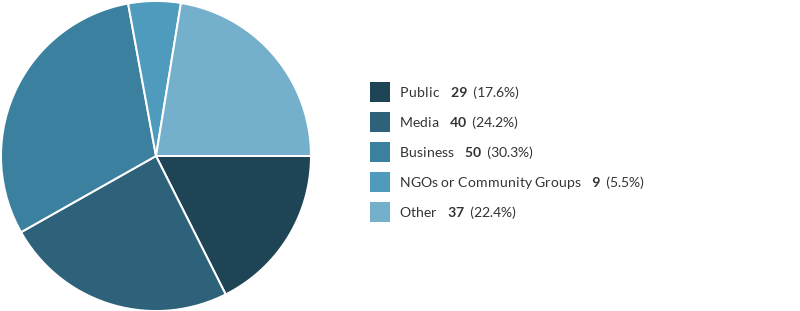Opening Up Local Government Spending in the UK: It's Complicated

Since 2010 UK government has been pushing for English local government to publish monthly all its spending over £500 online as Open Data. The government had high hopes for this financial transparency push. These ‘swift and simple changes’ could ‘revolutionise local government’ and ‘unleash an army of armchair auditors’, with citizens analysing the data and holding their local councils to account. It would reengage, empower and ignite interest in local government.
The evidence to date from my FOI requests, survey and interviews shows a limited number of people are looking at the information on websites. Compared with other more eye catching sites such as the online crime map police.uk or the data portal interest is relatively low (you can see some more statistics here).
Those looking at the data are a mixture of businesses seeking detail on contracts, NGOS, a few journalists and some curious citizens.

How they are looking is also very interesting. In line with other online participation, there are sudden bursts of interest and accountability that are unpredictable and mildly chaotic. There aren’t yet many Armchair Auditors, as most people lack the time, skills or interest.
One problem is that the data doesn’t tell a story as it should. It is de-contextualised and raw. There are also assumptions about how we interpreted information that doesn’t reflect reality. We may like to believe we are rational, free-thinking individuals but we have all sorts of gaps and biases. As scandals such as the UK MPs’ expenses saga showed, lots of information, even the very scandalous sort, doesn’t necessarily make us act, think or vote differently.
Politics also comes into it. A few councils are huge fans of Open Data, few seem hostile but most, at a time of severe cuts, are simply complying. Some are suspicious of the real motives of central government and feel the information is custom made to make councils look like reckless spenders or wasters.
This not to say the reforms have failed. In fact, the data has already sparked new applications such as Openly Local orapp.gov (still in development) or LG Inform. These tools allow you to search, compare, join up and manipulate the data in all sorts of interesting ways. he Local Government Association’s LG Inform tool, where you can generate benchmarks to measure your own council’s spending or performance against the national average. You could see this new local information working together in the style of TheyWorkForYou or joining with the new tax data on the Open Data Communities hub.
Together with other reforms, the data could help create a new eco-system of local openness and activism. From local referenda to activists bloggers and hyper local sites, the spending data fits with a suite of new ways of getting involved. It could also help councils know better how their policies are working. But this will take time, enthusiasm and experimenting-things politicians often find are in short supply.
You can read the full article here Worthy, B. (2015), The Impact of Open Data in the UK: Complex, Unpredictable and Political Public Administration. doi: 10.1111/padm.12166 and his blog on Open Data and FOI here.
